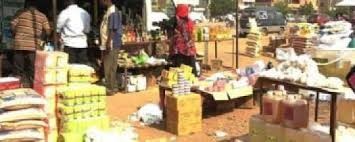Citizens in different parts of South Sudan have complained about soaring prices of essential commodities at the market as the local currency continues to weaken against the US dollar.
In Juba, the prices of food items have skyrocketed in recent days. Analysts attribute the rise in prices due to the ongoing conflict and drop of oil prices in the international markets because South Sudan depends on the oil revenue as the main source of government income.
Traders at Konyo-Konyo market in Juba told Radio Tamazuj that in a span of a week, food prices have increased dramatically.
They said the price of a sack of maize flour was 4,100 SSP last week, but now costs 4,700 SSP. Similarly, a 20 liter jerrican of cooking oil was being sold at 2,700 SSP, but it has now reached 4,700 SSP. The traders pointed out that the price of a sack of onions is now sold at 3,500 SSP.
Elsewhere in Mundri, Pastor Felix Zara kurai of the Episcopal Church in Mundiri said the major cause of increasing prices in Amadi state is the ongoing war.
Kurai noted that the war displaced many farmers and hence they couldn’t cultivate. “Last year, our area witnessed a lot of fighting and people did not cultivate and now prices in the market are very high. As I talk to you now, one bucket of corn is sold at 750 SSP, and a bucket of cassava flour is 250 SSP, while sugar is 130 SSP and in other places is sold at 120 or 140 SSP,” he said.
Moreover, traders in Rumbek town of Western Lakes State complained that citizens’ purchasing power has gone down because the people do not have the money to buy basic necessities.
Mohammed Al Hassan, a trader in Rumbek, said customs and taxes have also contributed to the high prices of goods in the area.




